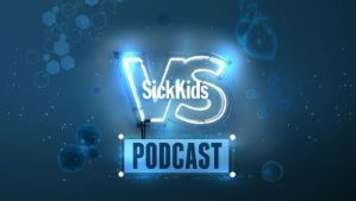What is a neuropsychological assessment?
A neuropsychological assessment is an assessment of how your child’s brain works. It is done by trained specialists called a neuropsychologist and a psychometrist.
The neuropsychologist focuses on how changes in the health of the brain may affect a child’s ability to pay attention, remember things or solve problems.
Paediatric neuropsychologists have special training in how the brain develops. They use this training to assess and help manage brain disorders in children and help parents, teachers and doctors:
- understand how problems with the brain may relate to problems seen at school, at home or with peers
- understand how a child learns best
- understand why a child may have behaviour problems
- help a child deal with thinking or behaviour problems
- identify neurological or psychiatric problems
- help match expectations to a child’s specific strengths and weaknesses
- work with other doctors and teachers to develop the best treatment and school plan for a child.
How is a neuropsychological assessment different from a psychoeducational assessment?
Paediatric neuropsychologists and school psychologists often use some of the same tests, but they have different goals.
- School evaluations focus on deciding if a child has a problem with academic skills such as reading, spelling or math.
- Paediatric neuropsychologists focus on understanding why a child is having problems in school or at home and how it relates to the child’s medical history.
Understanding a child’s specific thinking strengths and weaknesses helps to better focus school plans and medical treatment and helps educators and caregivers understand potential areas of future difficulty. Because neuropsychologists have training in clinical psychology and neuropsychology, they are also able to consider how learning, emotions and behaviour relate to each other and the child’s brain.
When would my child need a neuropsychological assessment?
A neuropsychological assessment might be recommended if a child had a brain injury, illness or medical condition that can affect their learning or mental health. Neuropsychological assessments can also be helpful to understand neurodevelopmental disorders such as ADHD or learning disability, especially when a previous educational assessment or intervention has not helped.
Why is a neuropsychological assessment important for my child’s mental health?
A neuropsychological assessment is important for several reasons.
- It provides important information about your child’s current mental health – addressing thinking, learning, behaviour and emotions.
- It is a reliable tool for reporting your child’s learning progress at different points in time.
- It can provide information about your child’s mental health in relation to their medical conditions with suggestions on how best to support your child.
- Depending on the results of the assessment, it may offer evidence of your child’s needs to help you get extra supports at school or in your community.
How should I prepare for the assessment?
Before the assessment, the neuropsychologist will usually mail you a package with questionnaires for you and your child’s teacher to fill in. As well as filling in your own questionnaire, give the teacher their questionnaire and collect it from them when it is completed.
To prepare your child for the assessment, tell them that this is a different kind of doctor’s appointment. For example, you might explain that the doctor will be doing different activities with your child, some that are like school activities and others like games. Many children enjoy the experience once they understand that there is no pressure to give the "right" answer.
Do I need to bring anything to the assessment?
It is always helpful to bring a copy of your child’s recent report cards and/or their individual education plan (IEP), if they have one. Remember also to bring the questionnaires that you and your child's teacher have completed.
What happens during a neuropsychological assessment?
Through parent and child interviews, questionnaires and one-to-one testing with your child, the neuropsychologist will gather information about your child’s development, medical history and functioning at home and at school. The following issues are commonly assessed:
- intelligence (IQ)
- problem solving
- planning and organization
- attention and memory
- processing speed
- language
- academic skills
- visual perception
- control over hand movements
- depression and anxiety
- aggression and impulsive behaviour
- social skills
How long does the assessment take?
The assessment usually takes half a day for pre-schoolers and a full day for school-aged children. There are different assessments for children of different age groups and abilities.
As a parent or main caregiver, you will actively take part in the assessment by being interviewed and completing questionnaires about your child.
What happens after the assessment?
Once the assessment is complete, the neuropsychologist will review the results and provide a written report for you and for your child’s school and the school board as needed. The report will:
- indicate your child’s current functioning, thinking skills and mental health status
- describe how these issues relate to each other and to your child’s medical condition
- offer personalized recommendations for your child’s schooling and for boosting your child’s mental health at home.
Working with your child’s school
With your permission, before and after the assessment, neuropsychologists often work with your child’s school to identify the services or special help your child needs. The neuropsychologist may contact your child’s educators (again with your permission) to learn more about their everyday classroom experiences and learning environment. In some cases, a meeting will take place where a team (including the neuropsychologist) discusses the school goals and accommodations for your child.
Further information
For more information on brain disorders and related mental health challenges, please see the following pages:
Brain disorders and mental health: Overview
Brain disorders and mental health: How to help your child cope
Brain disorders and mental health: Common treatments
Resources
The following books offer useful information about brain disorders and related mental health issues.
Dawson, P. & Guare, R. (2009). Smart but Scattered. New York, NY: The Guildford Press.
Dawson, P. & Guare, R. (2010). Executive Skills in Children and Adolescents. New York, NY: The Guildford Press.
Greene, R. W. (2014). The Explosive Child. New York, NY: HarperCollins.
Guare, R. & Dawson, P. (2013). Smart but Scattered TEENS. New York, NY: The Guildford Press.
Huebner, D. (2005). What to Do When You Worry Too Much: A Kid's Guide to Overcoming Anxiety. Magination Press.
Siegel, D. J. (2013). Brainstorm. New York, NY: Penguin Group.
Siegal, D. J. & Bryson, T. P. (2011).
The Whole Brain Child. New York, NY: Random House.
SickKids VS takes you to the frontlines in the fight for child health, where big questions drive big breakthroughs: Where do we start when a child’s disease is unknown? Can we heal the brain? How should we talk to kids about dying? Behind each quest, is a remarkable family and story. Listen now and subscribe.
HOW DO WE HELP PARENTS HELP THEIR KIDS? SickKids VS Parent Stress (Part 2)


